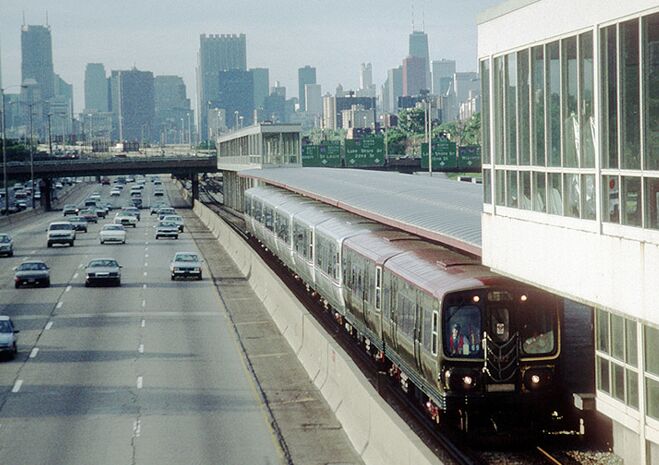 |
| An example of the rail system in Chicago. |
To start, the faster transportation provided by trains allowed for industrialization. With the routinized shipment of goods, materials and people new markets were open as well as new methods for business. During the peak, all business had a vested interest in the railroads and all cities and towns vied to have a place on the rail ines because it was the difference between disappearance and prosperity.
Industrial business embodied a shift from small scale local operations to huge, national companies. For example, in the begninnings of railroad construction there were a multitude of small companies working on small sections. Then, companies began to snowball growing larger and swallowing up small companies to eliminate competition. this gave rise to the infamous monoploies leading to public demand for government regulation and the beginnings of labor unions. The perception of the American people also shifted from a local to a more national level. However, not all responses to the increasing presence of rail roads was positive. Many saw the change as destruction of order, and many farmers were experiencing the painful economic shift from agriculture to industry.
Rail roads in the early 19th century are only one example of events that changed the lives and perceptions of Americans. The same analysis can be applied to the internet and the dot com boom that spanned the late nineties to early 2000's. I believe that the most pertinent example at present is social media as a means of cultivating previously untapped social capital. As we continue to explore democracy and the importance of voluntary associations it is important to keep events within their historical context. While railroads may not be as exciting today as they were in the early 19th century, change will eventually out date social media such as facebook.
No comments:
Post a Comment